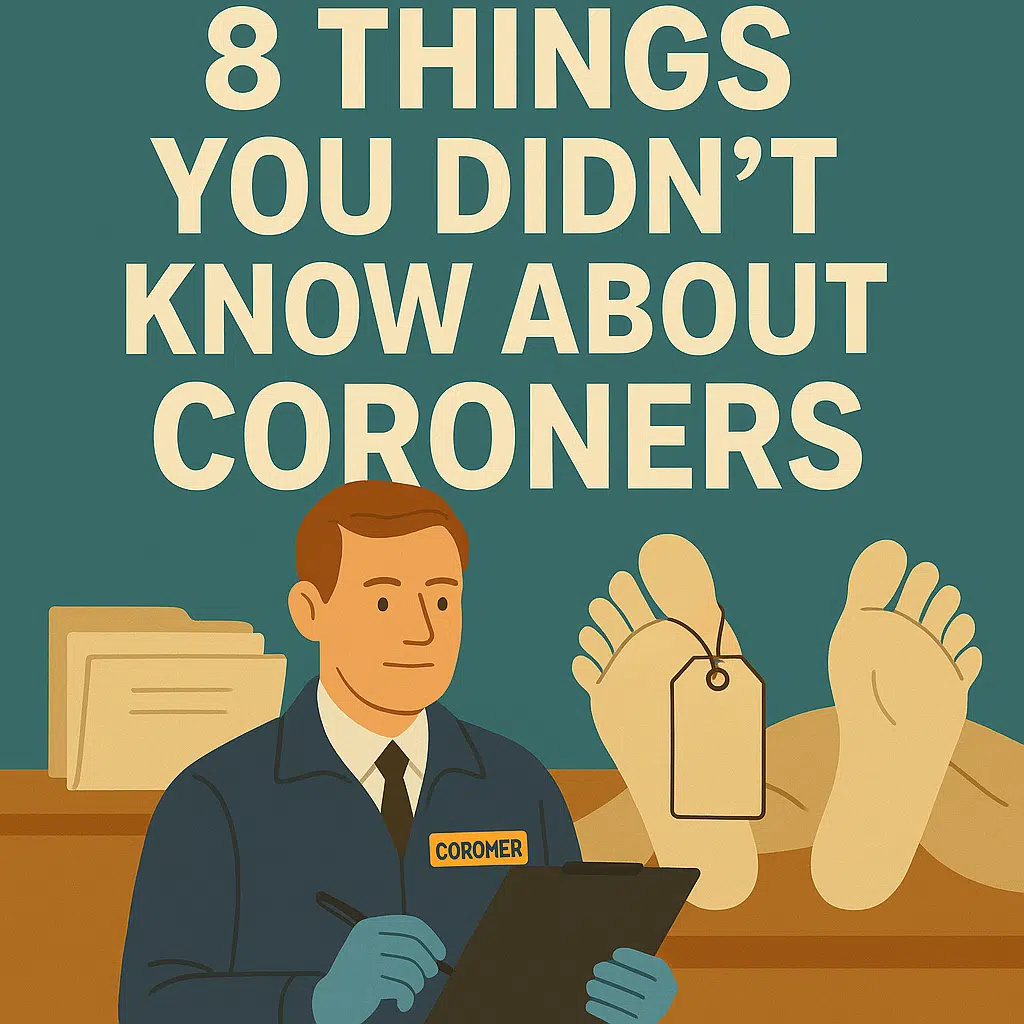When most people think of coroners, images from crime dramas come to mind—flashlights at the scene, latex gloves snapping, and ominous pronouncements of time of death. But the reality of the job is a lot more grounded, complex, and community-oriented than you might expect.
Here are eight things you probably didn’t know about coroners—and why their work matters more than you think.
1. You Don’t Always Need a Medical Degree
Unlike medical examiners, who are typically licensed forensic pathologists, coroners are not always required to have a medical background. In many U.S. counties, the coroner is an elected official. Legally, the only requirement may be a high school diploma or GED. That said, most people who hold the job have experience in law enforcement, public health, nursing, or forensic science.
In some jurisdictions, coroners must complete state-certified training after taking office. Others prefer candidates with advanced education or relevant field experience, but legally, it’s often more flexible than you’d expect.
2. Coroners Don’t Perform Autopsies
This is one of the biggest misconceptions. Coroners can order an autopsy, but they rarely perform one themselves. Autopsies are typically conducted by forensic pathologists, who are medical doctors trained to examine the body and determine the exact cause of death.
The coroner’s job is to determine whether an autopsy is necessary, interpret the findings, and make a legal determination about the cause and manner of death. They also decide whether other testing is required, such as toxicology or imaging.
3. They Handle a Lot of Paperwork
Despite what you see on TV, the bulk of a coroner’s work doesn’t happen at a crime scene—it happens at a desk. Coroners are responsible for completing and filing death certificates, keeping case records, writing reports, and often managing communications between law enforcement, medical personnel, and families.
Accuracy is key. Mistakes on official documentation can create major legal, emotional, and administrative problems for families trying to move forward.
4. Coroners Investigate More Than Just Crimes
Many people assume coroners only show up for homicides or suspicious deaths. In reality, coroners investigate a wide range of situations, including:
-
Unattended deaths
-
Accidents
-
Suicides
-
Drug overdoses
-
Deaths in custody or in state care
-
Unknown or unexpected deaths at home
Their job is to make sure no death is overlooked or improperly classified, whether or not foul play is involved.
5. Some Coroners Are Elected, Others Are Appointed
How you become a coroner depends entirely on your county or state. In many smaller or rural areas, the position is elected and may be part-time. In more populated counties, coroners may be appointed by a board or health department, and the role is typically full-time and more clinical.
This also means that coroners may have different resources and responsibilities depending on where they work. Some manage a full investigative team, while others work solo or alongside local law enforcement.
6. The Job Requires Empathy, Not Just Analysis
Being a coroner is not just about solving puzzles or completing forms—it’s about showing up for families at one of the hardest moments in their lives. Coroners often serve as the first point of contact for grieving relatives, helping them understand what happened and what happens next.
This takes empathy, professionalism, and the ability to communicate clearly and compassionately. It also requires the emotional resilience to deliver difficult news while keeping your own boundaries in place.
7. They Play a Vital Role in Public Health
Every death tells a story, not just about the individual, but about patterns in the community. Coroners help identify trends in public health, including:
-
Drug-related deaths
-
Suicide rates
-
Infectious disease outbreaks
-
Workplace or environmental hazards
Their reports can influence local policies, shape prevention efforts, and help agencies respond more effectively to community health challenges.
8. You Can Make It a Career—or a Calling
Coroners come from a wide range of backgrounds. Some enter the field through criminal justice or law enforcement. Others are nurses, EMTs, or even funeral directors who want to move into investigative work. Still others come from public administration or forensic science.
While some jurisdictions offer full-time salaried roles, others contract the position part-time. For those who feel called to bring clarity, order, and dignity to some of life’s hardest moments, it’s a job that offers both challenge and meaning.
Final Thoughts
Coroners occupy a unique space between medicine, law, and public service. They provide critical answers, protect public health, and support families through one of life’s most difficult transitions. While the path to becoming a coroner isn’t one-size-fits-all, the people who succeed in the role tend to be grounded, curious, calm, and compassionate.
It’s not glamorous. It’s not easy. But for the right person, it’s one of the most meaningful jobs out there.
If you have feedback, questions, or ideas for future articles or Information Hubs, please contact us. Your insights help us create valuable content.


